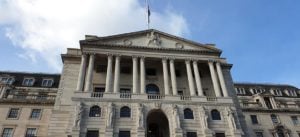Bank of England raises base rate to 4%

The Bank of England (BoE) has today (2nd February) raised its base rate for the tenth consecutive time as it continues its battle with inflation. However, announcing the 0.5% rise to a new base rate of 4%, BoE Governor, Andrew Bailey, indicated projections of it peaking at 4.5% in summer 2023 still look promising.
While economists predict inflation will not reach the target of 2% this year, it is expected to fall to around 5% by the end of 2023. This will be seen as a success by many given that it peaked at over 10% in 2022.
The Governor has also suggested there are already signs of inflation coming under control and his announcement indicated this could be the last rate rise for the time being.
In June 2022 he said the BoE would “respond forcefully” to inflationary pressures. Today’s statement contained a far more measured promise that rates will only rise further “if there were to be evidence of more persistent (inflationary) pressures”.
So, while this latest rate rise will be a cause for concern for homeowners and first-time buyers, there is at least some hope that the markets are coming under control.
What does the rate rise mean for mortgages?
This depends on the type of mortgage deal you are on.
Borrowers with a tracker mortgage will see their payments go up almost immediately, with the average expected to be an increase of around £49 per month.
Those on their lenders’ standard variable rate (SVR) will need to wait until they hear from their provider to know whether they will see an increase in their monthly repayments. This is because SVR rates are decided entirely by lenders – although they do tend to increase following a base rate rise.
Fixed rate deals will not be affected in the immediate term. But homeowners whose fixed term deal is due to expire in the next six months are likely to find the rate they pay when they remortgage is higher than their current deal.
Those expecting to remortgage during this period are advised to speak to a broker now about their options. Some lenders allow borrowers to lock in a rate for up to six months, which could protect against the expected increase to 4.5% at some point before the summer.
Fixed rates have come down in recent months and are expected to continue falling throughout the year. But with the average 2-year and 5-year fixed rates currently around 3% higher than this time twelve months ago, the chances of remortgaging at a better rate in 2023 are slim.
Of course, people who took out a bad credit mortgage and now have an improved credit score, or those whose equity has moved them into a more attractive loan-to-value (LTV) band may still be able to secure a lower rate. So, it’s worth exploring all options before committing.
The next base rate announcement is due on 23rd March 2023.
